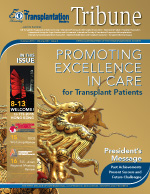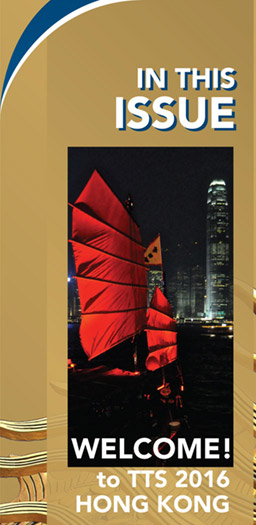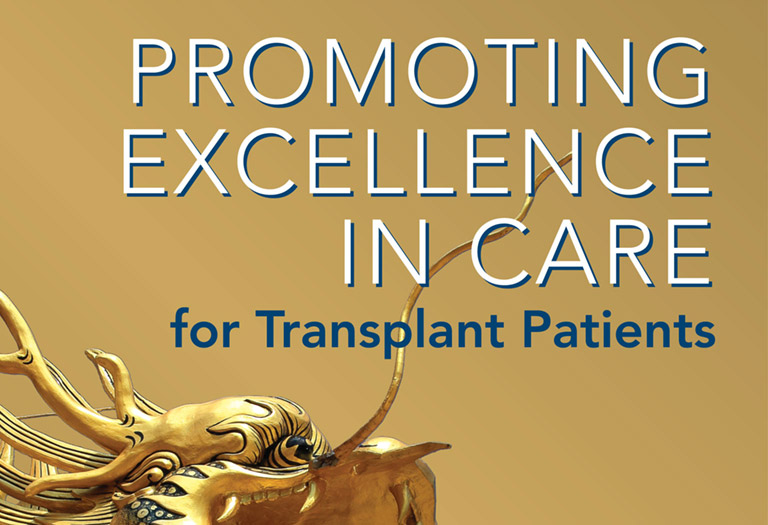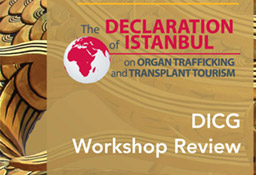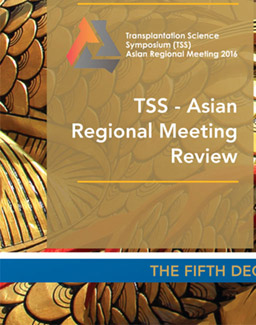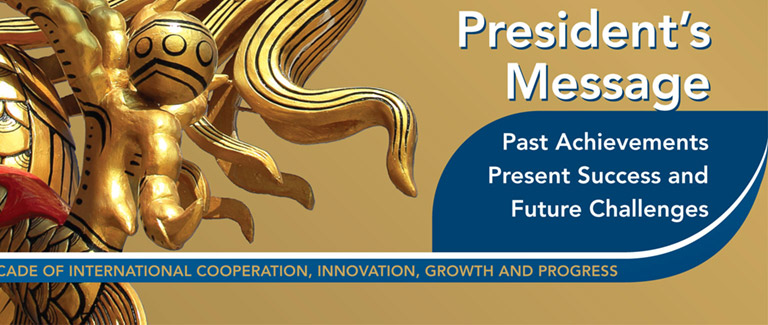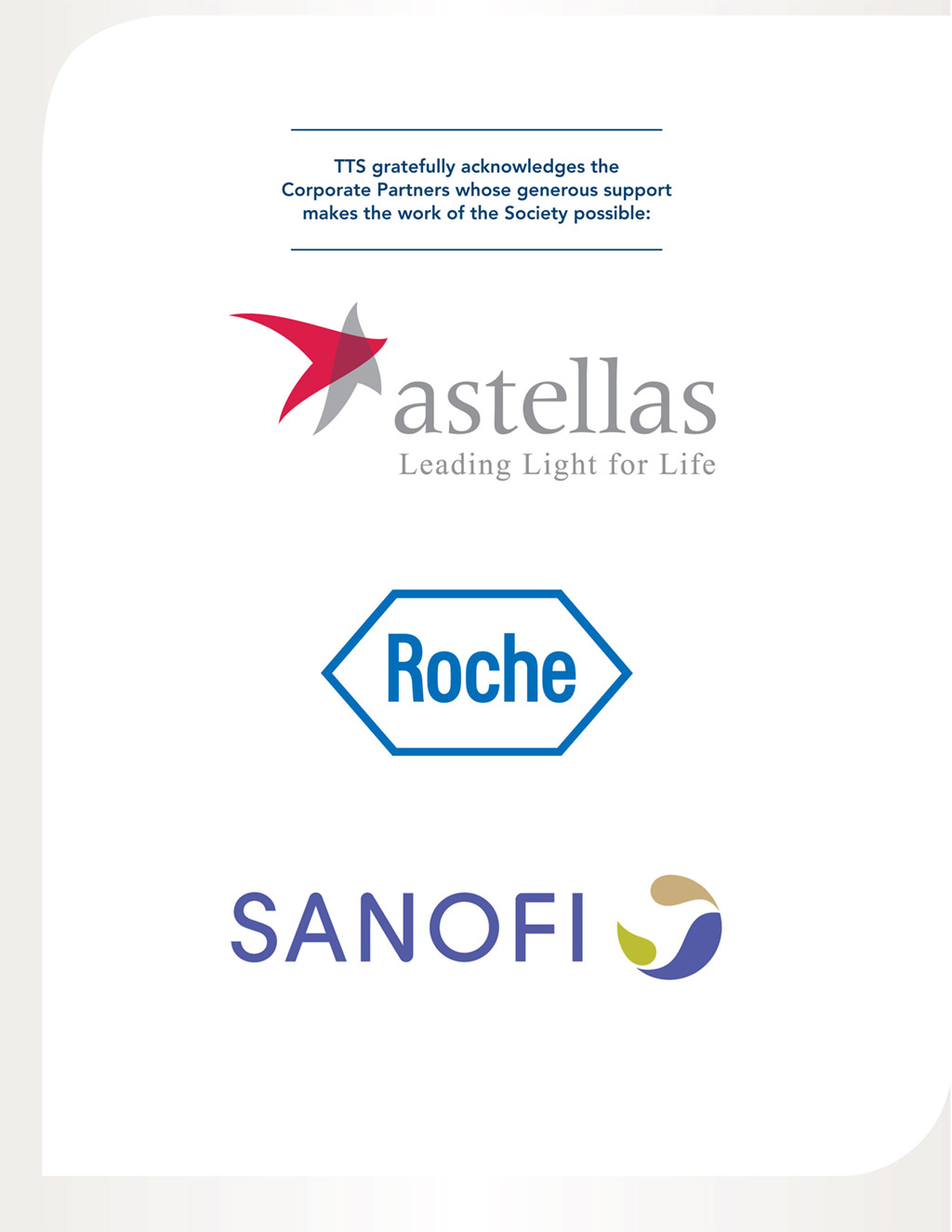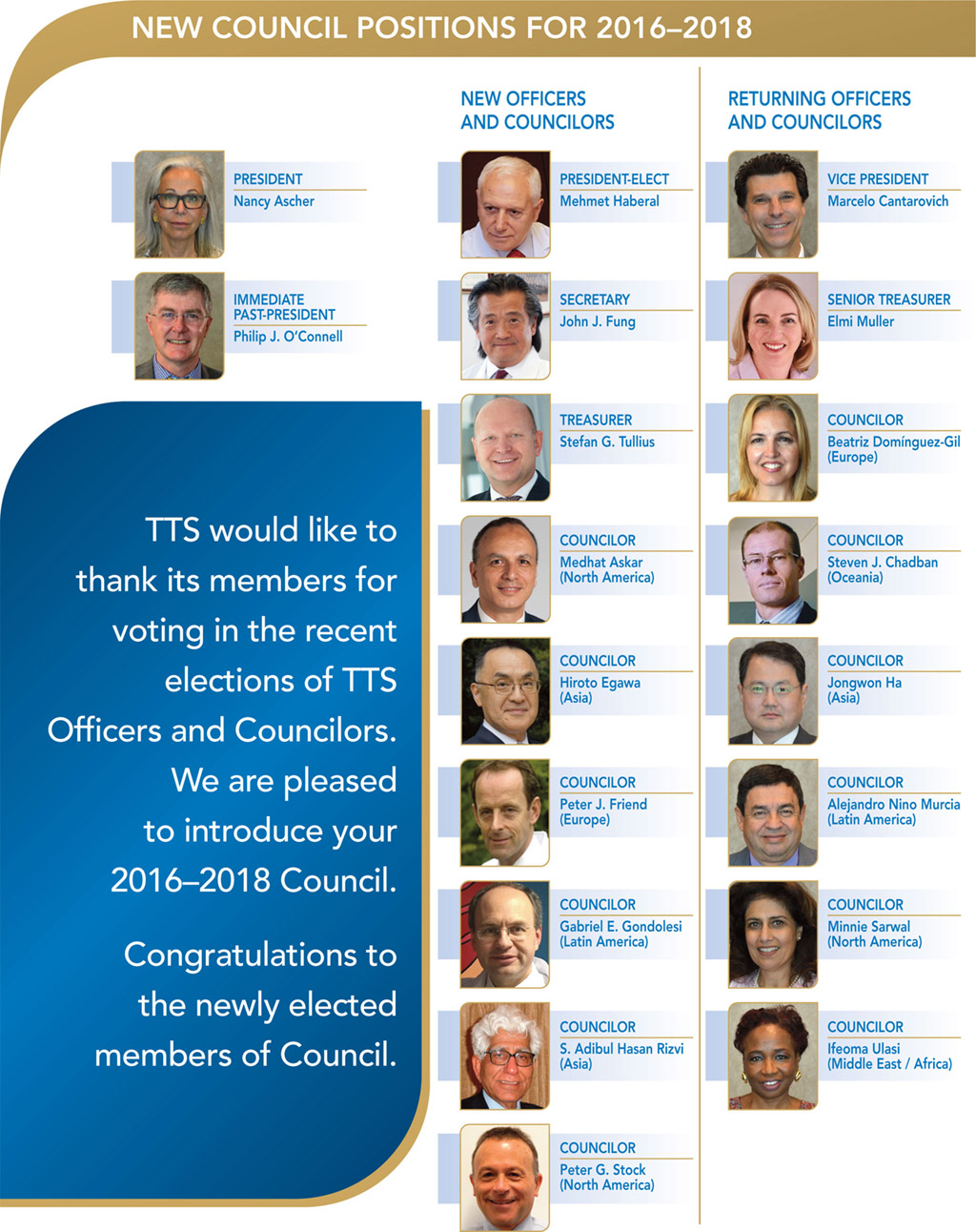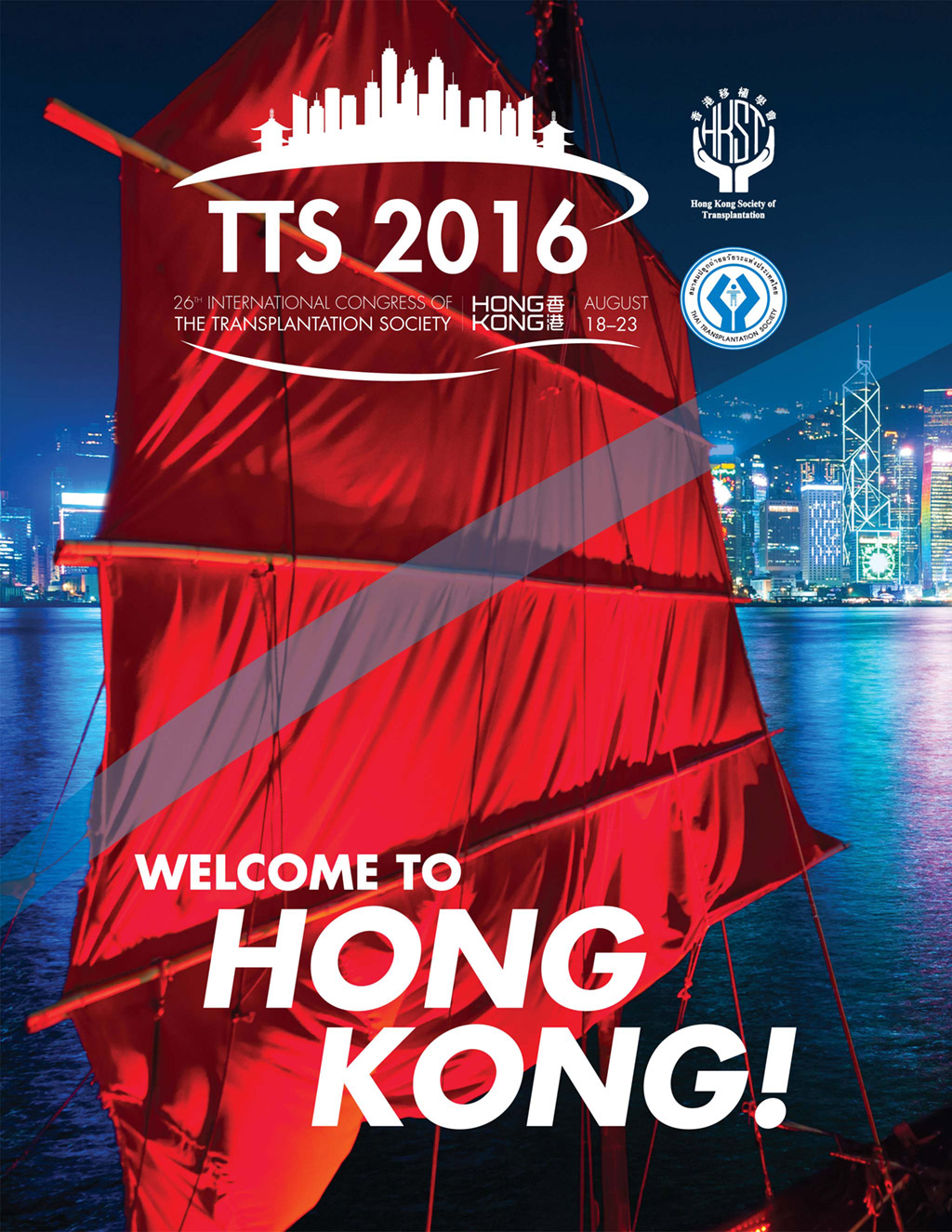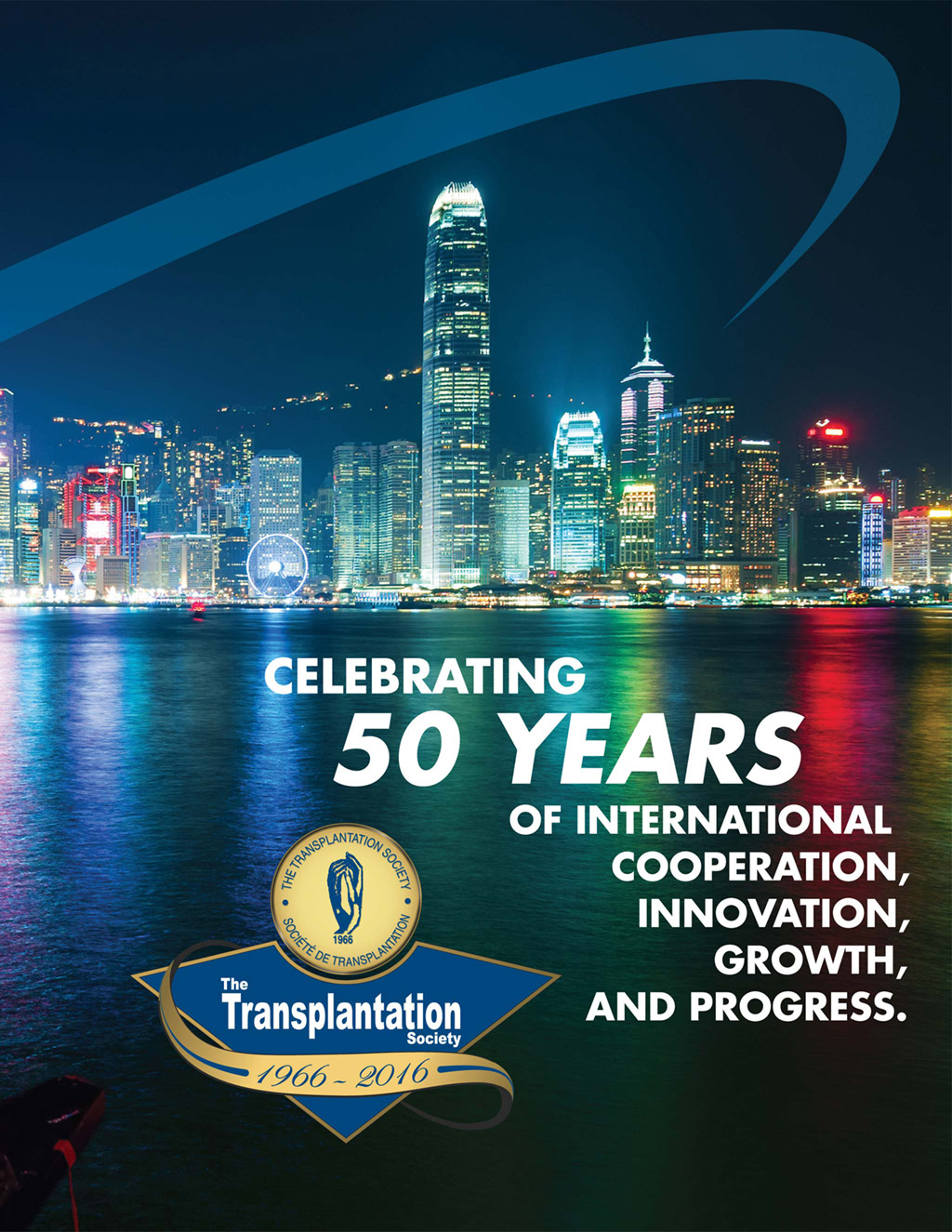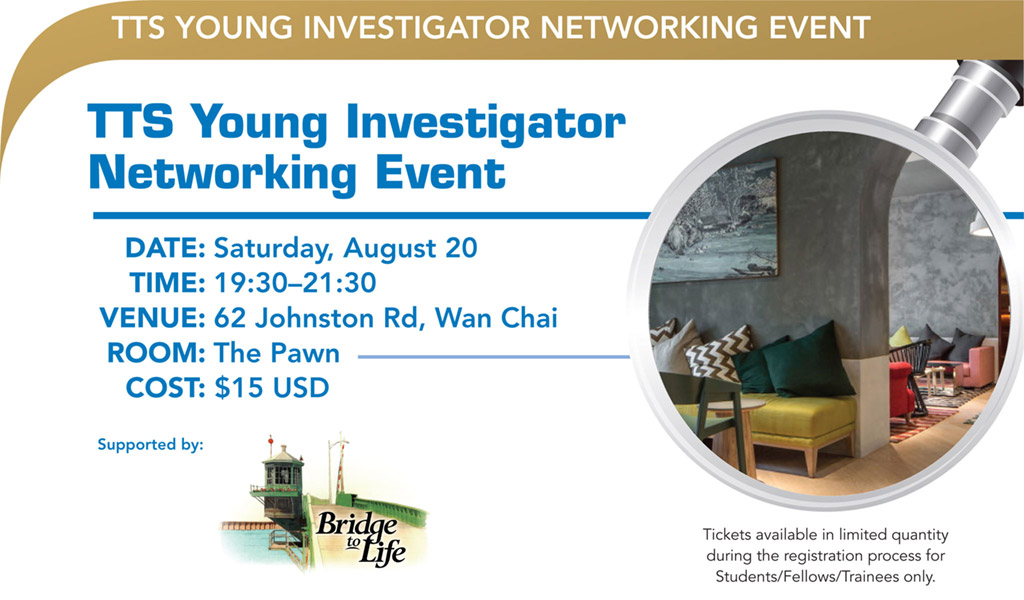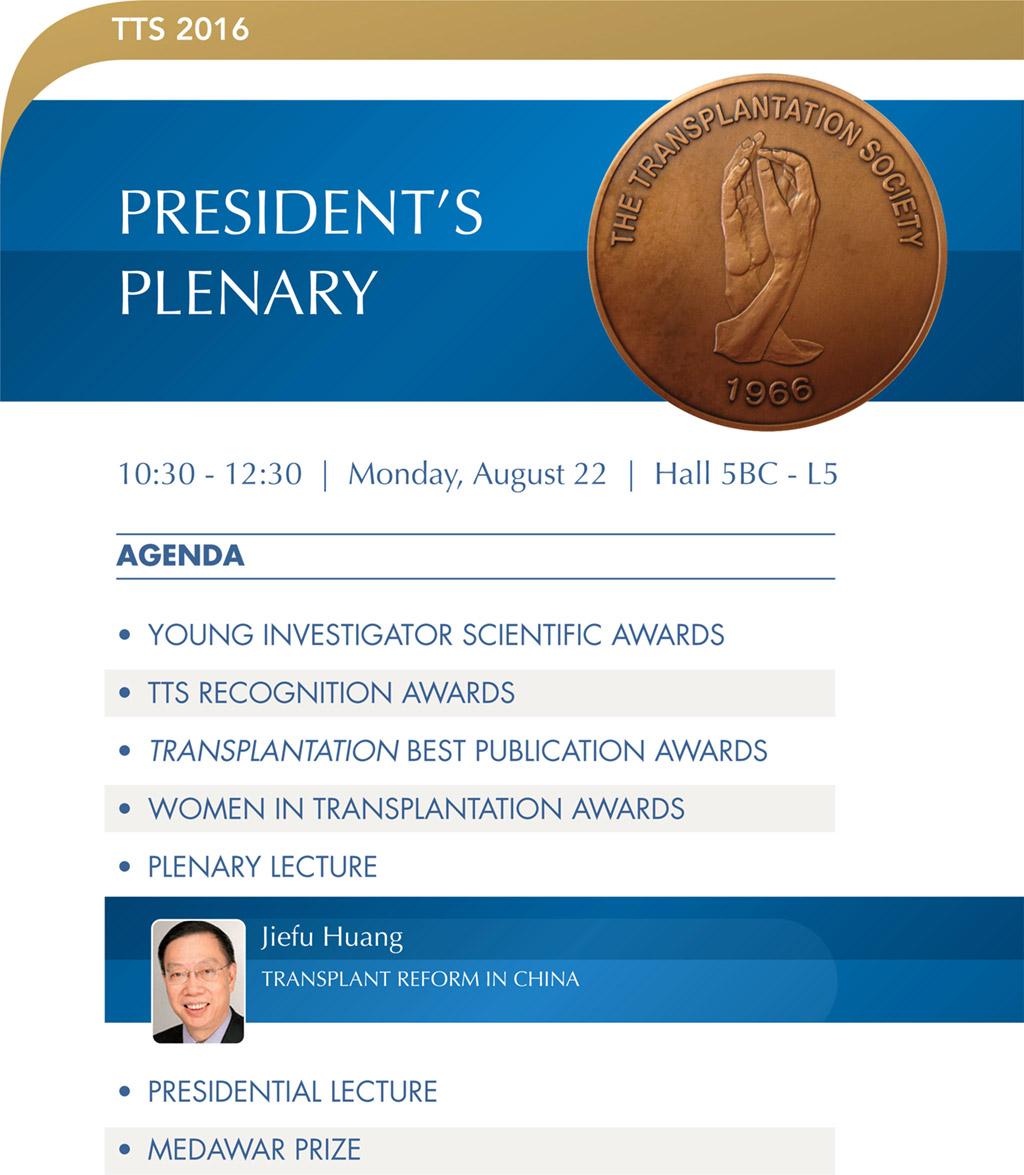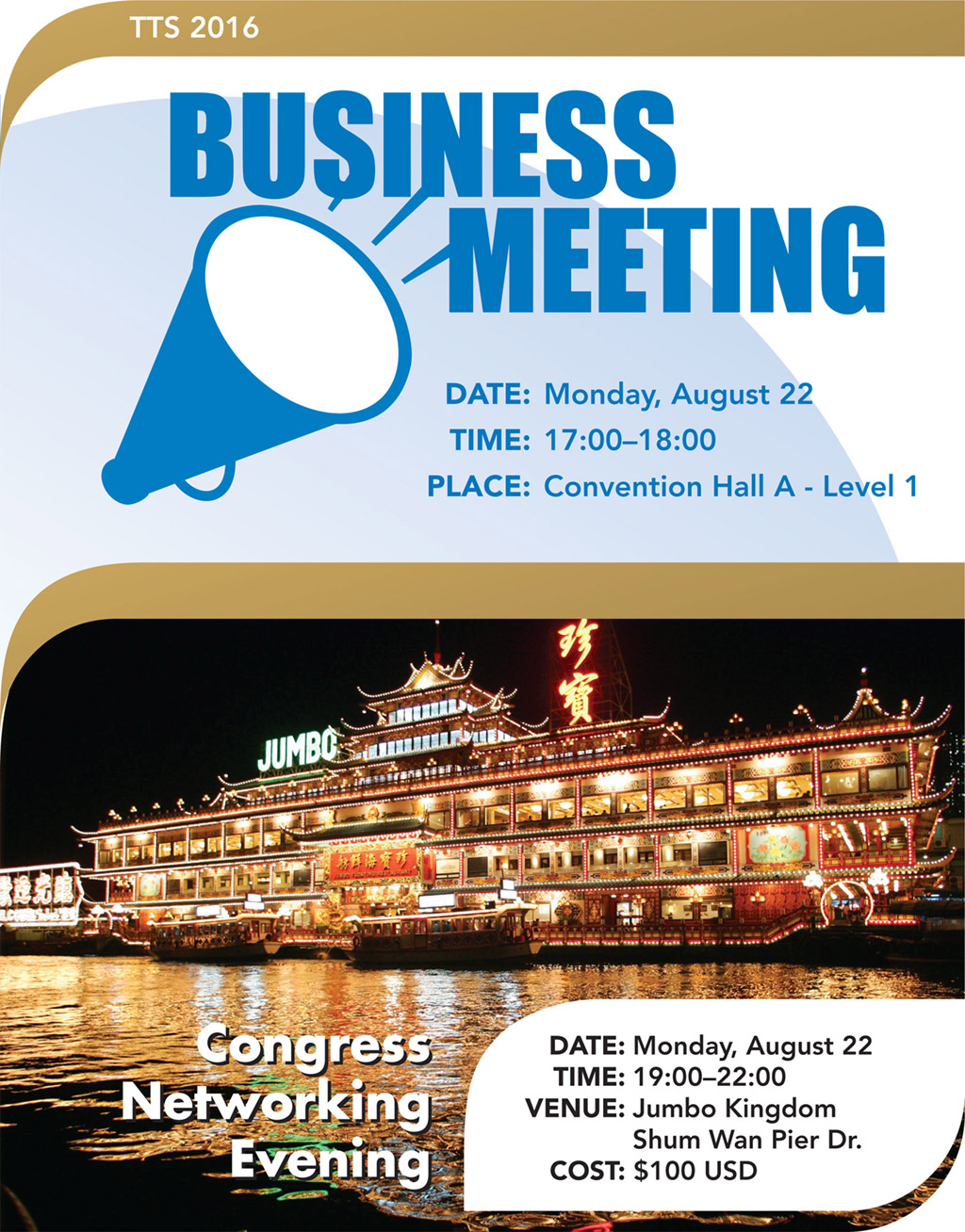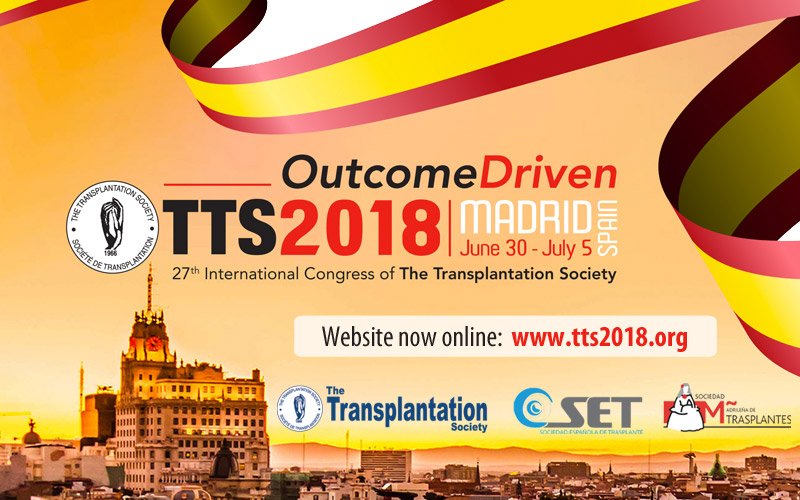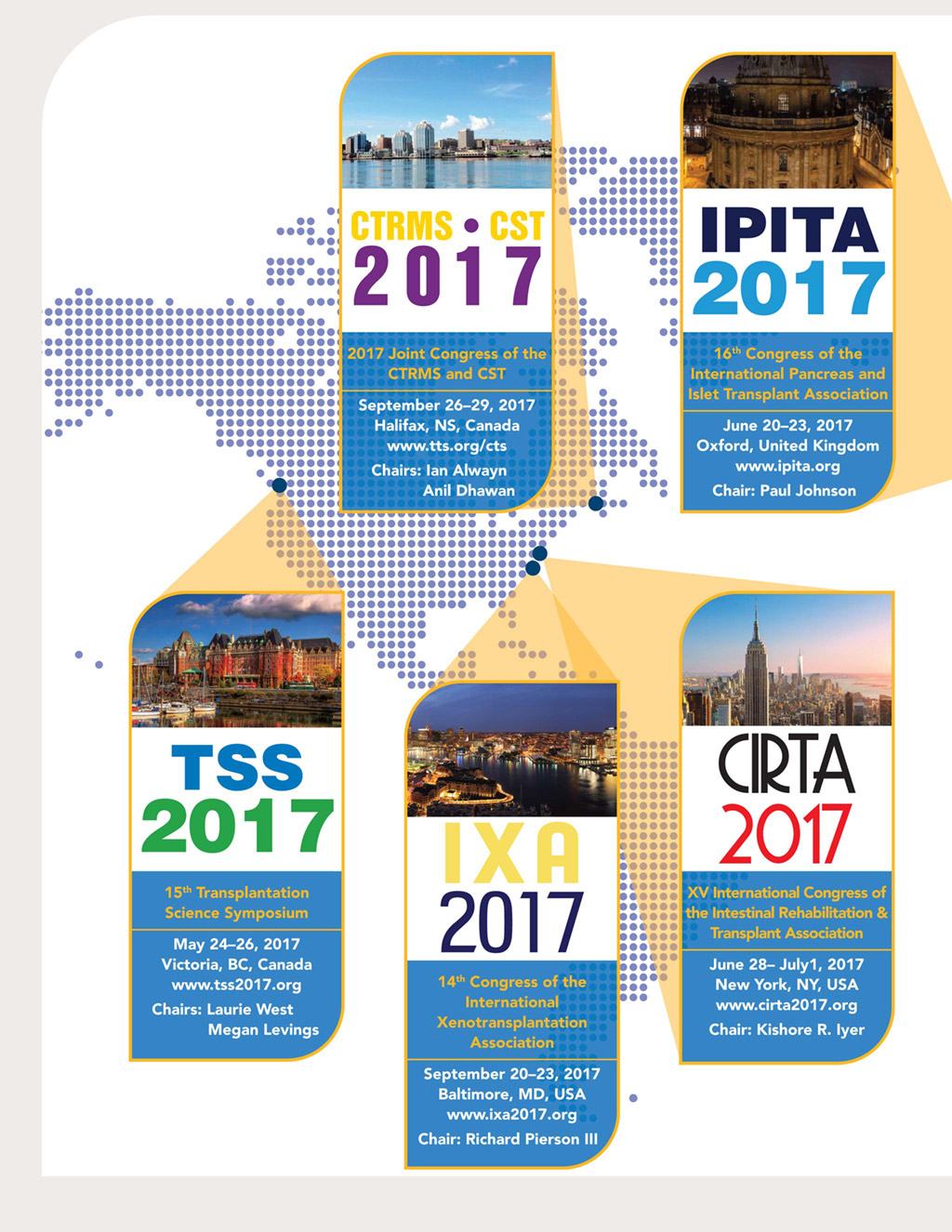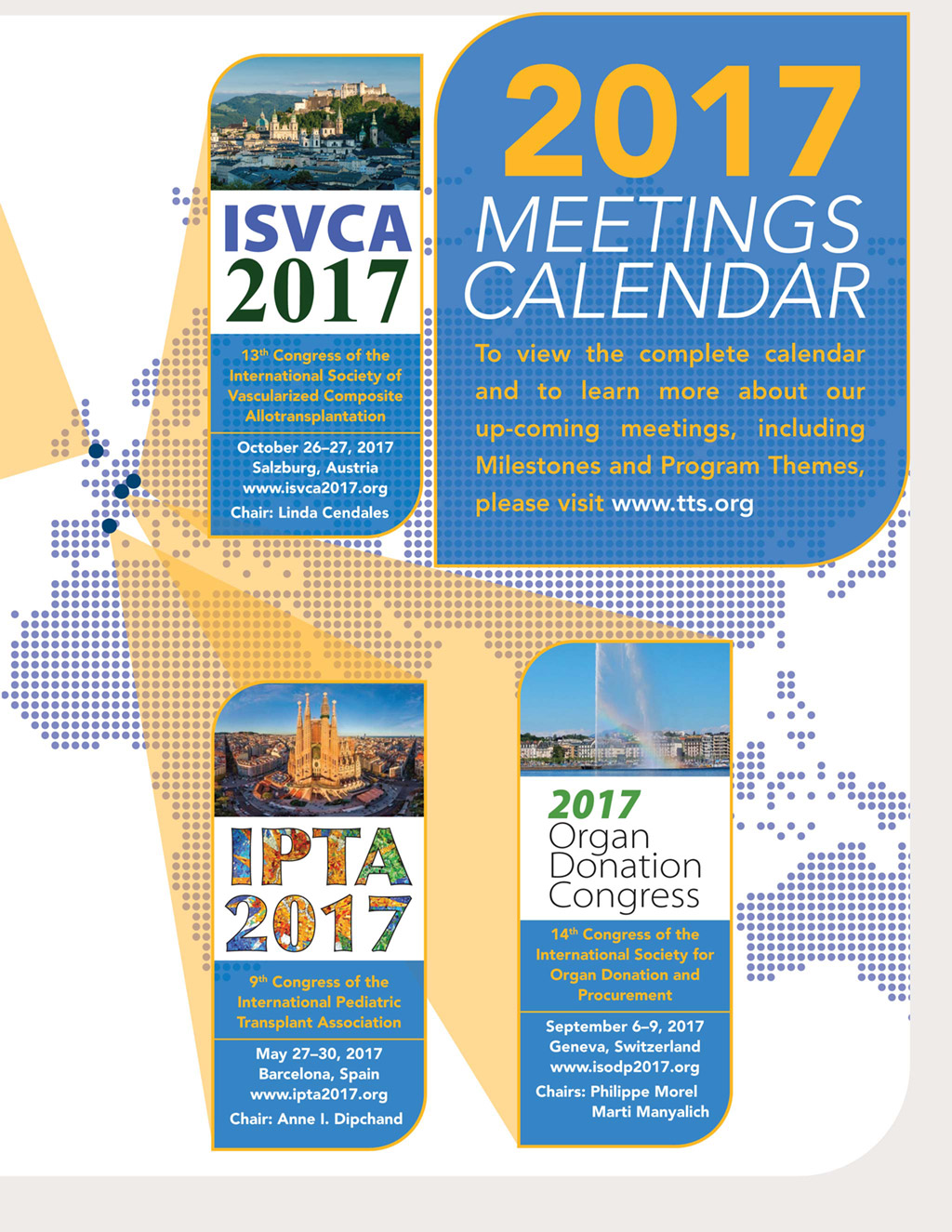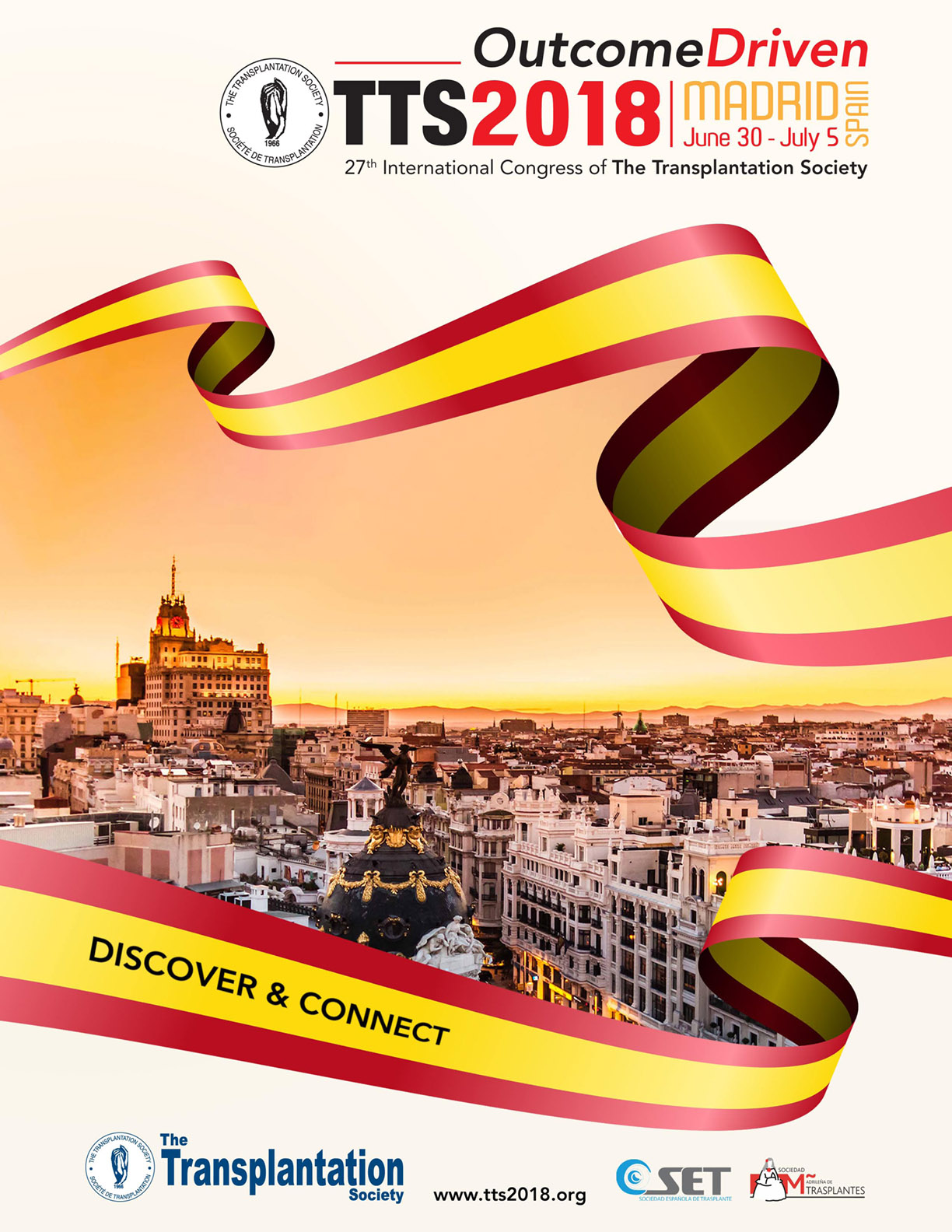Newsletter 2016 Volume 13 - Issue 2

This edition of Tribune is published at the time of the International Congress of the Society in Hong Kong. It also marks the conclusion of my term as President and a changing of the guard for our Council. At this time, it is appropriate to reflect on what has been achieved over the past 2 years.
The society has a diverse group of members from all parts of the globe. This is one of our strengths as it brings under one roof a large group of talented people with a broad range of skills and interests. It also means that it is our responsibility to respond to the many challenges that face our members. One of the biggest challenges we face is reinvigorating interest in clinical trials of new immunosuppressive agents. Although there are many new immunomodulatory agents currently approved or under investigation for autoimmune disease there is little enthusiasm for bringing these agents to transplantation. There are many reasons for this. One thing that has become clear is that the clinical trial design that led to the approval of calcineurin inhibitors and the rapid expansion of transplantation is no longer serving us well. What is also clear is that the international transplant community has failed to communicate to both the regulators and the pharmaceutical industry what are our major unmet clinical needs in transplantation.
In addition, we have not attempted to reach a consensus on these issues. In response to this issue, the Society brought together a group of expert clinicians in transplant clinical trials with the objective of identifying what are the major unmet clinical needs, and what would be the best approach to develop new trial designs that would be in compliance with new guidance that has been developed by regulatory authorities. The objective was to develop a pathway to a new clinical trial paradigm, to identify gaps in our understanding of chronic graft loss and to unify the profession behind a new model for evaluating immunosuppression protocols so that we can interact in a constructive way with regulators and industry, and re-invigorate interest in transplant immunosuppression. The meeting that was held in Arlington, USA, in August 2015 was a great success and a lot of goodwill was generated. An important outcome of the meeting was to highlight major opportunities for collaborative clinical research to validate surrogate endpoints and validate biomarkers that can be used in clinical trials. The challenge remains for us to work collaboratively across borders to better understand causes of graft failure, and predictive markers of outcome.
the objective was to develop a pathway to a new trial paradigm, to identify gaps in our understanding of chronic graft loss, and to unify the profession behind a new model...
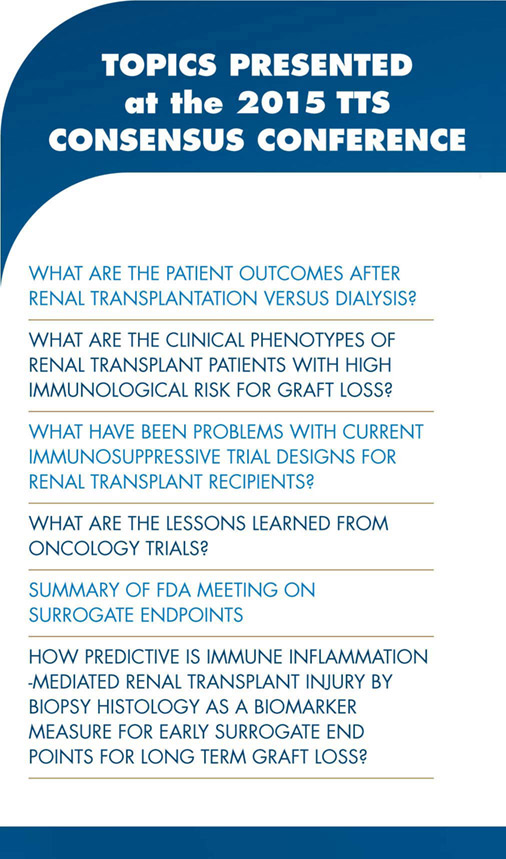
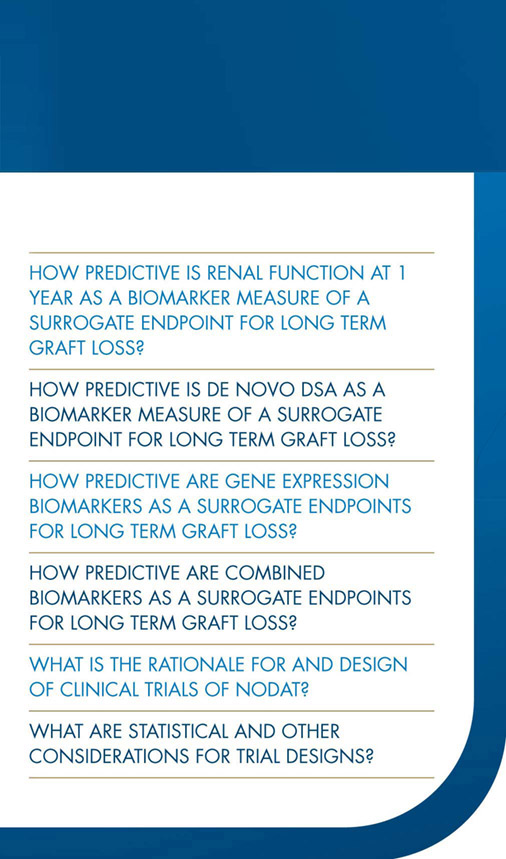
Another important objective of the Society is to promote the development of transplant programs in regions where people currently have little or no access to this therapy. Whereas it has been shown to be the treatment of choice for end-organ failure, it remains out of reach for many. Whilst in some jurisdictions this is due to a lack of the sophisticated medical infrastructure necessary for such treatment, in many places it is due to a lack of organ donor networks. It has been a long-standing mission of the Society to assist in building the capacity of new transplant centers and to promote ethical organ donation, especially in regions where this is poorly developed. Whilst this remains an ongoing challenge, we have seen some recent successes. After years of hard work, we are now seeing improvements in Asia. Despite some formidable cultural and structural challenges, Thailand has a donor rate of 6.6 per million population. Organ donor rates continue to improve in Korea where the benefits of the recently established national transplant registry are being felt, with the provision of evidence to define better their needs and requirements for the future. These successes were the result of the local transplant communities and their national transplant societies, and TTS applauds them for their efforts. I anticipate that, going forward, they will be able to lead the way for other countries in Asia.
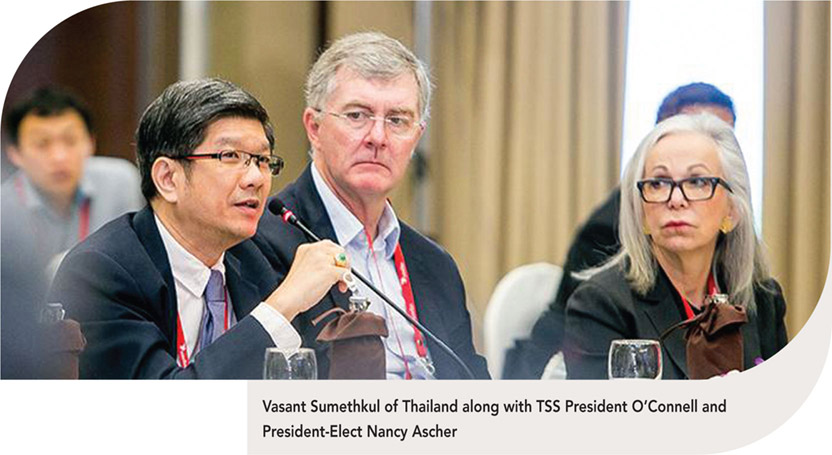
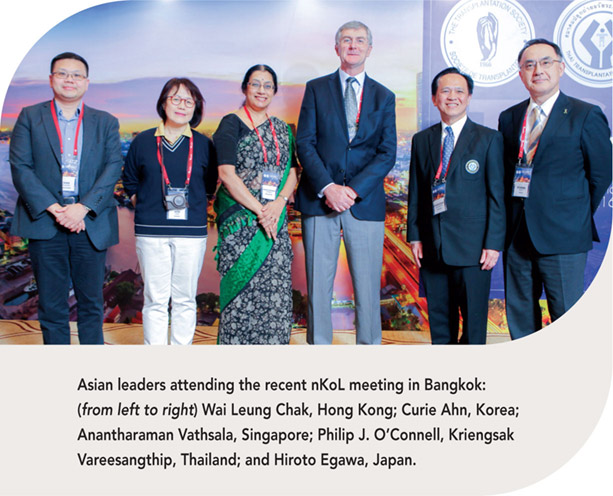
If we fail to provide ethical transplant options in this region, developing countries will be vulnerable to unethical practices, transplant tourism and organ trafficking. Unfortunately, there were too many examples of this over the past two years. The Society continues to maintain an uncompromising approach to this important humanitarian issue. We continue to highlight unethical practices and prompt the relevant authorities to shut these practices down. Through the Declaration of Istanbul Custodian Group (DICG), many of our members have worked on this issue in their own region and have provided guidance to others to promote the development of appropriate practices. An important counterpoint to this is the need to promote viable options for developing countries. In this sphere, there is an important role for our Society in providing both mentorship and education. Much of the Society’s efforts are focused on these twin objectives. The education committee led by Marcelo Cantarovich and Vivek Jha are in the process of developing a Transplant Academy course, and there are regular Webinars by some of the worlds leading experts in transplantation. The Society has organised several satellite meetings to meet targeted educational objectives, such as the new Key Opinion Leaders meeting in Thailand. We are also partnering with the ISN to promote the ISN-TTS Sister Transplant Center Program. This program provides funding to a developing center that partners with a senior center to stimulate mentorship and ongoing partnership in training and education. Some successful Sister Centers will be presenting their outcomes at the Hong Kong meeting.
the Society continues to remain at the forefront of science, education and public policy...
The Society continues to remain at the forefront of Science, Education and Public Policy. We have partnered with three other international organisations to develop ethical principles for the management of donors of medical products of human origin. Our Transplantation Science Committee has ensured that a good understanding of Science remains the foundation of clinical practice and held one of our most successful Transplant Science meetings in Lorne, Australia. Our sections continue to push new uses for transplantation and the decision of the International Pediatric Transplant Association to partner with us as a TTS Section has provided both organisations an opportunity to improve the health outcomes of some of our most vulnerable patients.
In concluding this message, I would like to thank you all for the support you have given me over the past 2 years. It has been an honor to lead such an outstanding organization, and I remain in awe of the commitment and dedication you show to your patients and colleagues. The task has been a pleasurable one because of the hard work by an outstanding Executive and Council. They have served us well, and, without show or fanfare, have taken time from their family and medical practice to deliver the aims and objectives of the Society. I thank you all for the support you have given me.
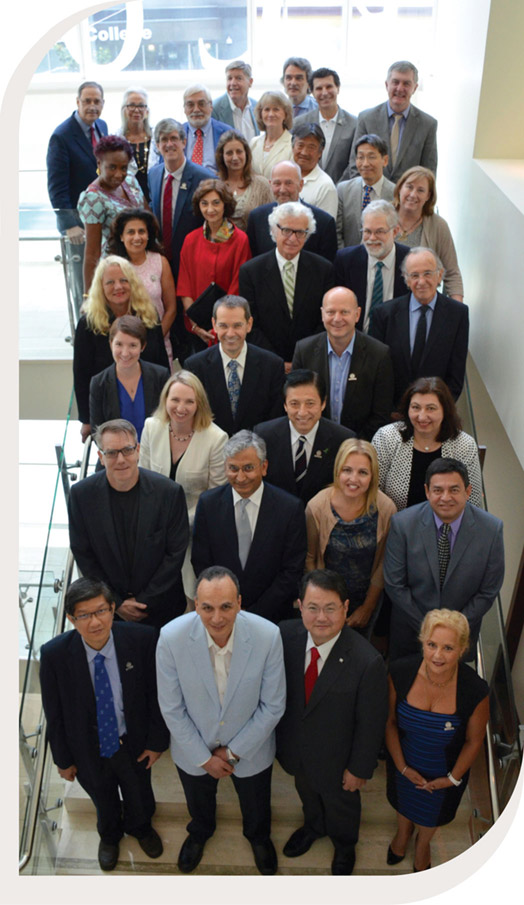
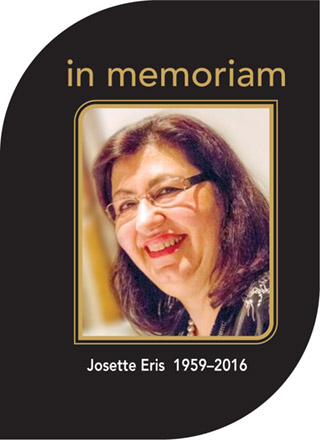
In concluding, I would like to send a message of condolence to the family, friends and colleagues of Josette Eris. Josette was the Chair of Women in Transplantation (one of the Society’s most successful initiatives) and the Councilor for Oceania. Recently she passed away after a brief illness. She will be sorely missed.
As I conclude my term I am confident that the Society is on the right track. The new council has many excellent individuals and I am confident that, under the leadership of Nancy Asher, they will achieve much. I wish Nancy all the best and l am sure it will be a successful time for the Society.
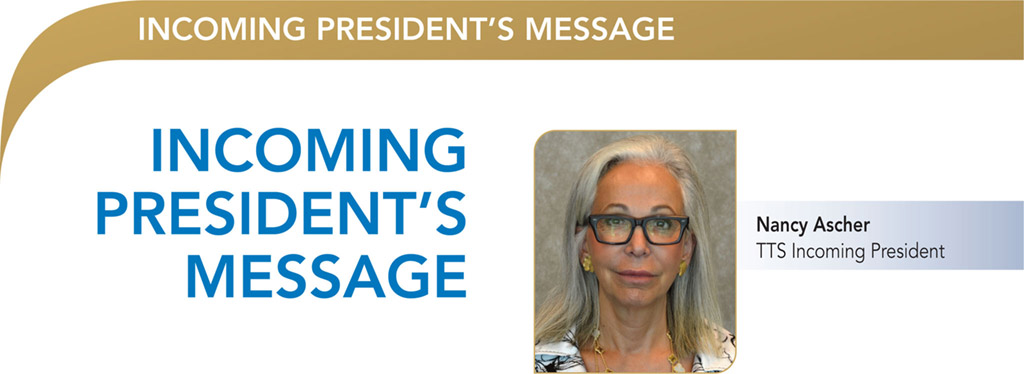
common goals
I am delighted to take on the leadership of The Transplantation Society, and also humbled and grateful to do so.
The Transplantation Society is the largest organization of transplant professionals, with membership that reaches around the globe. Although we represent disparate disciplines, we share the common goals of advancing transplantation science, improving clinical practice, increasing patient access, disseminating education and guiding public policy to improve and protect donor interests. TTS has been at the forefront to lead these efforts.
TTS continues to work with ISN to develop sister programs which will foster dissemination of best practices. We have recently undertaken a parallel program with ILTS to foster collaboration among established and newly developed liver transplant programs. We hope to develop similar joint programs in heart and lung transplantation. This Hong Kong Congress will afford us the opportunity to celebrate our fiftieth year. Having this meeting in Asia reflects the active growth of transplantation in Asia and the many advances in this region. We are grateful to Jeremy Chapman for his able leadership in organizing the program. TTS has expanded its educational efforts to include training at the Hong Kong meeting for the International Transplant Nurses Association. TTS also plans to develop closer collaboration with intensivists/critical care specialists and anesthesiologists to promote closer collaboration. This partnership will enhance care of the transplant recipient as well as facilitate end of life decisions of care.

The Transplantation Journal has been reinvigorated under the leadership of Dr. Jeremy Chapman and his editorial team. The new online offering, Transplantation Direct, provides for rapid dissemination of transplantation science.
During the next two years, we will be planning the 2018 TTS Congress in Madrid in partnership with our Spanish colleagues and the 10th Anniversary meeting of the new Declaration of Istanbul. This meeting is being planned by the DICG group. TTS is working with ASTS & AST to organize another World Transplant Congress which we hope to hold in 2022 or 2024. I encourage TTS members who are interested in becoming more involved to look at our committee structure and let me know if you want to be considered for committee membership. I am grateful to Phil and the Council for their stewardship over the past 2 years. Phil has graciously agreed to organize the Madrid 2018 program.
Although we represent disparate disciplines, we share the common goals of advancing transplantation science, improving clinical practice, increasing patient access, disseminating education and guiding public policy to improve and protect donor interests
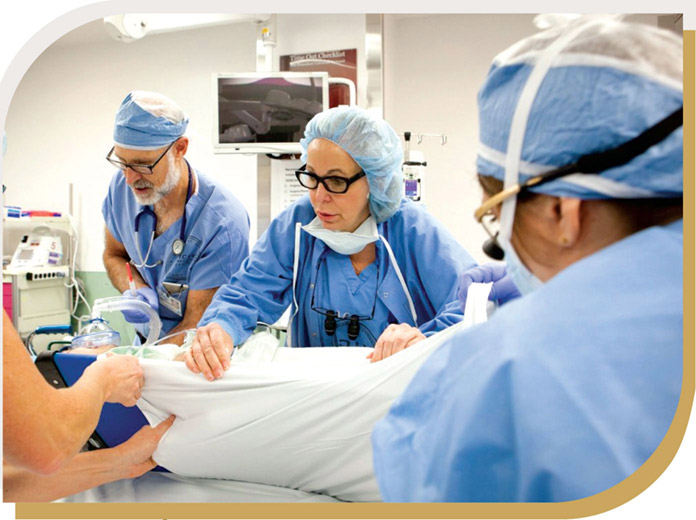
Nancy Ascher has devoted her career to the field of transplantation. After training with John Najarian, she started the liver transplant program at the University of Minnesota in 1981, and in 1988, established liver transplantation at the University of California San Francisco where she became Chief of the Transplant Program and then Chair of the Department of Surgery. She remains clinically active in liver and kidney transplantation. Dr. Ascher has served the Health and Human Services Task Force, which drafted US National Organ Transplant Act; on the Advisory Committee to the Surgeon General’s Workshop on Organ Donation; and as Chair of the HHS Advisory Committee on Organ Transplantation (2000-2005). She is Past-President of ASTS (2000) and a past Councilor for the ILTS (2005-2009). She has been involved in TTS in a number of positions: as North American Councilor (2010-2014); as part of the Publication Committee restructuring the Transplantation Journal; and as Co-Chair of the Women in Transplantation initiative.
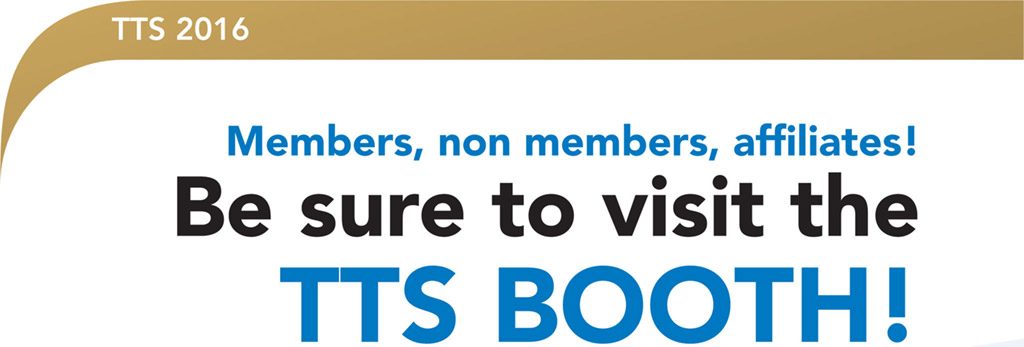
Located centrally in the exhibit hall, we have designed an open, inviting, and interactive space! Our official journal, Transplantation, and its companion, Transplantation Direct, will each have their own interactive station. There will also be a station for TTS Education, at which visitors will be able to look through our library of past multi-media presentations. And, in addition to having TTS staff on hand to assist, a station will be set up for Membership services. There will also be specialized areas, such as a corner designated for our 50th Anniversary Historical Project, a meet-and-greet lounge area for networking, and a photobooth where all are welcome to have some fun to mark the occasion! So whether you are interested in becoming a member, finding out about our Sections and their upcoming 2017 meetings, TTS’ next destination in 2018, or just to sit and chat with friends and colleagues, the TTS booth has a lot to offer!
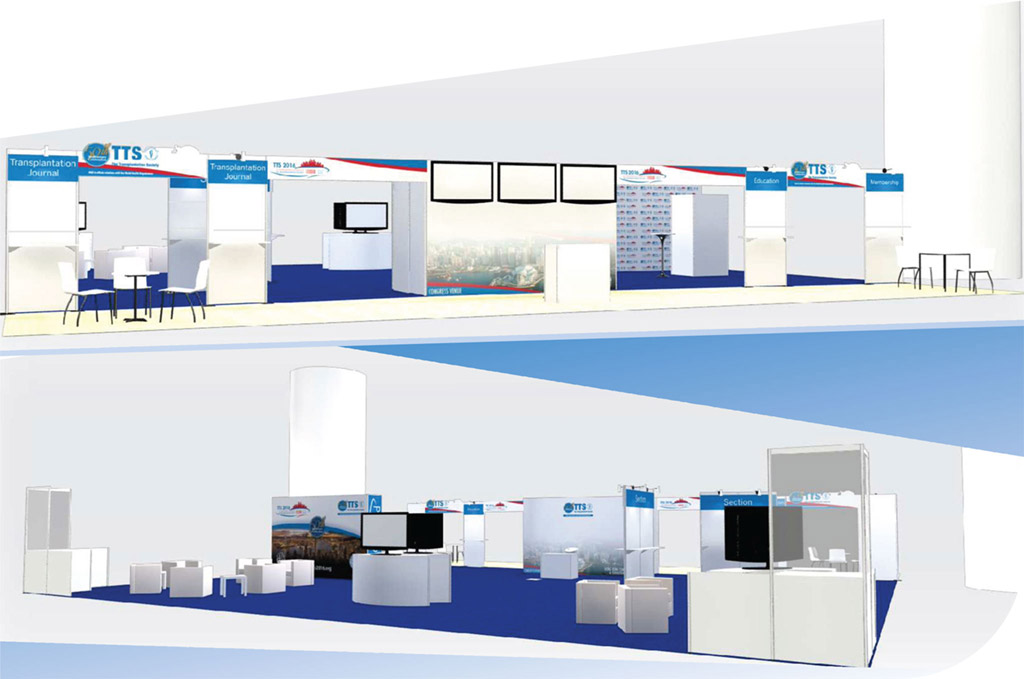
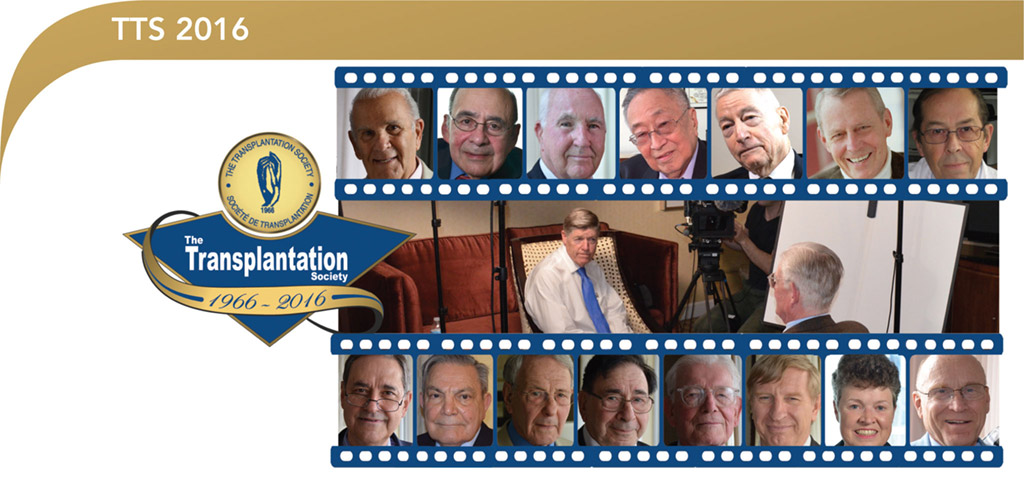
Celebrating 50 Years with two new exciting projects!
Under the direction of our historian, Randall Morris, we will be marking our 50th Anniversary Congress by introducing two new historical projects:
TTS Historical Mini-Theatre - We have filmed our Past President’s over the past two years and the interviews will be available for the first time in a special Mini-Theatre in the TTS booth.
TTS Historical Timeline - We have built an interactive multimedia timeline which will be on display next to TTS Historical Mini-Theatre.
Following the Congress the videos and timeline will be available on www.tts.org.
In 2018, the 27th International Congress of The Transplantation Society will be held in Madrid, the capital of Spain, June 30 to July 5. TTS has recognized the leading role of Spain in donation and transplantation, with the Spanish Model having become a reference worldwide. TTS and Organización Nacional de Trasplantes (ONT) were awarded the Prince of Asturias Award (considered as the Spanish equivalent of the Nobel Prize) in 2010 in the field of International Cooperation in recognition of their joint efforts in promoting ethical practices in transplantation.
We have brought together a high-profile program committee with the aim of developing a broad and exciting agenda that will cover a diverse array of topics, ranging from cutting-edge science to the latest controversies in ethics and public policy. Issues relevant to developing transplant programs, organ donation and procurement will be a highlight for many of you.
The destination and host city of the congress, Madrid, is a cosmopolitan metropolis that combines modern infrastructure with extensive cultural and artistic heritage. Madrid boasts the status of a financial, administrative and corporate center, while at the same time remaining a tolerant, passionate and lively city. Its individual artistic tradition effortlessly embraces multiple external influences, both past and present, thus highlighting the city’s continuing openness to new ideas. At present, Madrid represents the perfect symbiosis between efficiency and quality of life, as manifest in cost of living indices that are difficult to be matched in other capitals of the world. Located in the center of Spain, Madrid has excellent air and land connections with major destinations within, and outside, the peninsula.
We are looking forward to meeting you in this amazing city, as participants in a fantastic congress, but also as our personal guests. Rest assured that we will make all the necessary efforts to make you feel at home and experience the very best of Madrid hospitality.
Nancy Ascher
Congress Chair, TTS 2018
Jose Maria Morales
Congress Vice-Chair (Madrid), TTS 2018
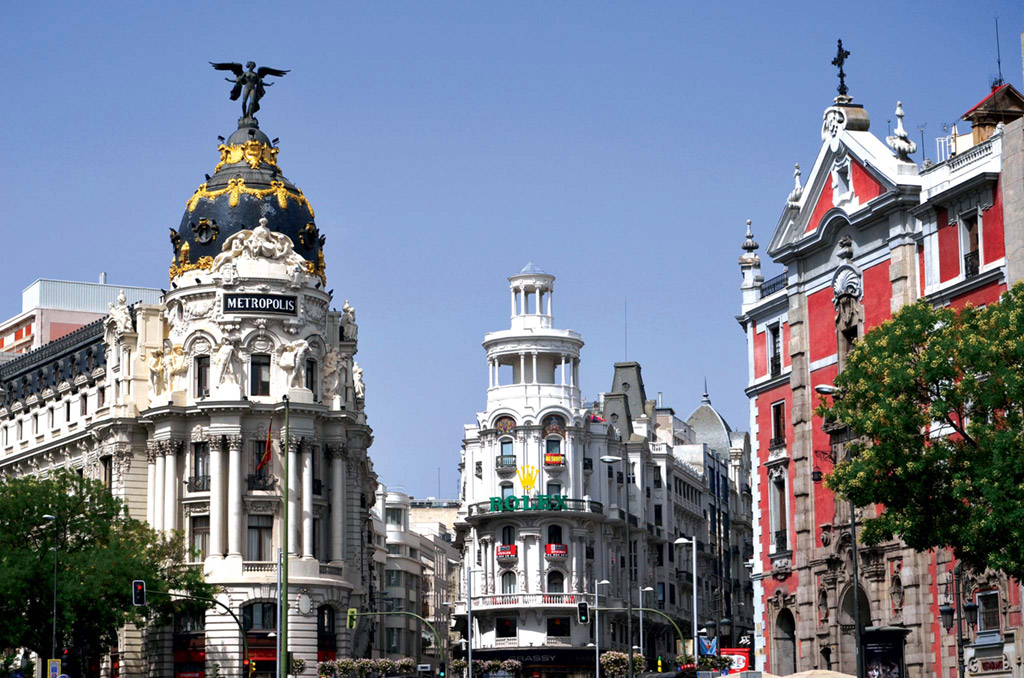

In 2010, the leaders of the parent organizations of the Declaration of Istanbul (DOI), The Transplantation Society (TTS) and The International Society of Nephrology (ISN) formed the Declaration of Istanbul Custodian Group (DICG), empowering the DICG to promote and sustain the DOI. A strategic plan of accomplishment by 2018 (the 10th Anniversary of the DOI) was developed to implement programs that could combat organ trafficking.
The DICG identified proper travel for transplantation as a topic of high priority. The DOI defines travel for transplantation as ‘the movement of organs, donors, recipients, or transplant professionals across jurisdictional borders for transplantation purposes’. The DOI further suggests that travel for transplantation becomes transplant tourism - and ethically unacceptable - if ‘it involves organ trafficking and/or transplant commercialism or if the resources (organs, professionals, and transplant centres) devoted to providing transplants to patients from outside a country undermine the country’s ability to provide transplant services for its own population’.
Under this general framework, the DICG identified a lack of guidelines for professionals in their care of transplant tourists, either prospectively – before the departure to a foreign country for transplantation purposes – or upon their return to their home country. There was a similar lack in relation to governments’ need of common policy and coordinated approaches in this field. The DICG convened a working group to address these challenges and develop procedural guidelines for both professionals and ministries of health contending with transplant tourists in the context of proper care – that otherwise can be accomplished by ethical travel for transplantation. In April of this year, a workshop took place in Madrid (Spain) with participants consisting of members of DICG Council and other individuals well known to the topic of proper travel for transplantation. The meeting was jointly sponsored by the ISN and TTS.
The workshop addressed travel for transplantation from two complementary perspectives:
- A Prospective Review Process of proper travel for transplantation when a patient indicates the intent to travel to a foreign destination for organ transplantation.
- A Retrospective Process to consider when a patient returns to their native country for medical care after they received a transplant in a foreign destination.
The DICG is in the midst of the preparation of the concrete and highly needed procedural guidelines and recommendations arising from this event.
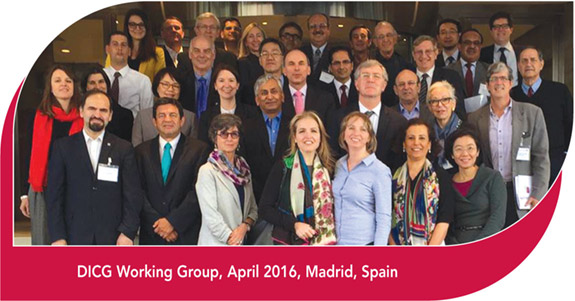
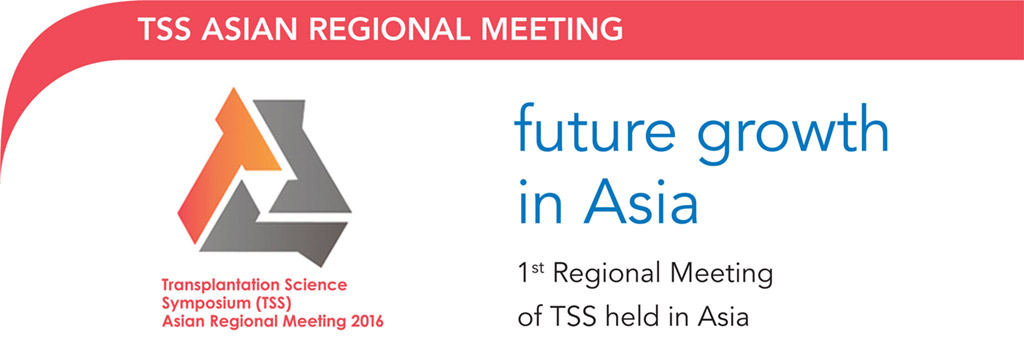
The Transplantation Science Symposium Asian Regional Meeting was held in Ryogoku, Tokyo, Japan on April 8th and 9th 2016. Held every two years, this is a subcommittee meeting of the Transplantation Science Symposium (TSS). The previous TSS was held in Lorne, Australia in November 2015, the outcome of which was clearly explained at the Tokyo meeting.
More than 350 people from 12 countries attended, with a paid attendance of more than 300, and adopted general presentations of more than 250. Many thanks for the assistance of Prof. Stefan Tullius, co-chair of TSS, with who’s help many useful lectures were realized.
The purpose of the Tokyo meeting was as follows:
- To understand the results of the latest basic research and to transfer this knowledge to young transplant physicians and surgeons in Asia: Researchers who are performing the basic research of transplantation attend TTS and report their research results; however, young transplant physicians and surgeons in Asia are often too busy with clinical activities and have less opportunity to examine in detail the latest information.
- To encourage participation in the TSS: Recognizing the importance of TSS by participating in the TSS Asian Regional Meeting and increasing participation in the TSS generally.
- Increasing the number of members belonging to the TTS: It is very beneficial that young doctors become members of the TTS. This benefit is most significant for the new generations of doctors and the society for transplantation of each of the Asian countries has strongly recommended it.
These three purposes can be judged to have been largely achieved. Even though the Tokyo meeting was a something of a trial effort, its impact was enough that already there are requests from other Asian countries to hold the next TSS Asian Regional Meeting.
It is my wish that this meeting will contribute to the improvement of basic knowledge for young transplant doctors and to the development of TTS.
Shiro Takahara, MD, PhD
2016 Meeting President
Professor, Advanced Technology for Transplantation
Osaka University Graduate School of Medicine
Osaka, Japan
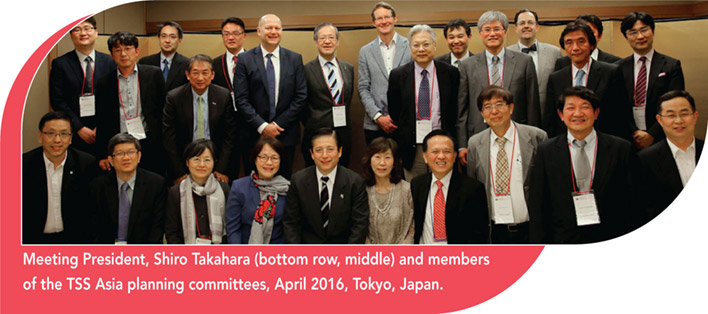
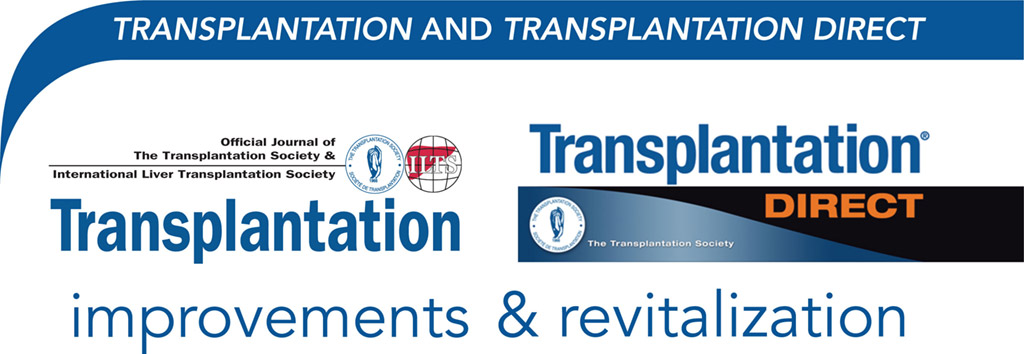
In April 2016 we polled our readers and reviewers for their feedback on our recent efforts to improve and revitalize the Transplantation Journal. We had close to 700 replies. The following are themes emerging from that feedback.
Quality of Published Works
Responses were split evenly between those who felt quality has improved (48 %) and those who felt it had stayed the same as the year before (50%), while 2% did not reply.
Overall Experience with the Journal
We asked respondents to rank their experience with the journal on several measures on a scale of 1 (poor) to 5 (excellent). We identified several areas that are ongoing concerns for our editorial team. For instance, plans are in the works to drastically change the way accepted material flows to production. You can expect to see material going online weeks faster than has been managed in the past.
Experience with the Editorial Office
Using the same scale as above, we asked respondents to rate the Editorial Office on several measures. We were gratified to read comments attesting to the friendliness, warmth, professionalism and overall goodwill most experience from this office. More than half of the replies rated the office 5/5 on all measures. We will continue to work to exceed your expectations!
Choosing Transplantation
More than one-third of respondents said that they consider Transplantation their first choice for publishing their work.
Popular Features
The In View section of the Table of Contents is a favorite of many readers. Research Highlights, written by Elmi Muller and Fadi Issa, continues to be the overall winner. More than 40% of respondents said they read it every month. People in Transplantation, Game Changers, and eResources are very popular also.
Social Media
The most popular social media venues for journal readers are Twitter @TransplantJrnl, and our transplant professionals’ network on LinkedIn, and Facebook. As a direct result of this survey, we have created a WeChat account in China to reach our dedicated Chinese readers.
Liver content
With our new partnership with the International Liver Transplantation Society 43% of respondents said they consider Transplantation the home of their liver material.
Transplantation Direct
Nearly three-quarters of respondents (72.85%) thought it was a good idea to establish an open access journal as a companion journal to Transplantation. Transplantation Direct has passed all application hurdles with the National Library of Medicine, and we are in the final approval stages.
Other Comments
We received many useful and helpful comments that will continue to guide our editorial direction and highlights improvements. In addition, we had nearly 200 ideas put forth on topics readers would like to see reviewed in the journal. We may be calling on you to help us with those topics!
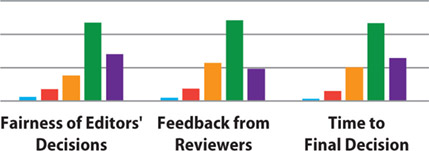
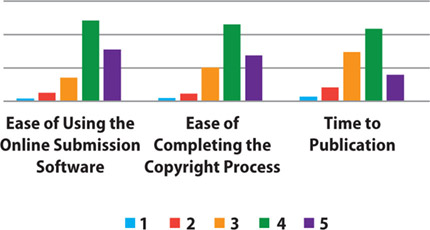
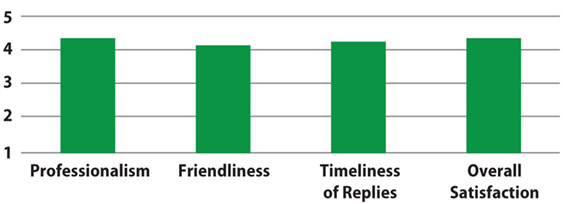
To all those who participated in our short survey, we thank you for your continued support and interest in YOUR journal!
If you didn’t get a chance to tell us your views on the directions for our journals in this survey, please drop us an email (This email address is being protected from spambots. You need JavaScript enabled to view it.).
we would love to hear from you — the journal is for you, so please help us make it increasingly useful for your work
Jeremy R. Chapman
Editor-in-Chief
Transplantation Journals

The Hong Kong meeting is fast approaching with many highlights of what will be a full and exciting transplantation science program. With Plenary, State of the Art and Morning Symposia, the meeting will cover the breadth and depth of what’s hot and breaking news in transplantation science.
Particular highlights include the opening plenary session of the meeting with keynote addresses by Alexander Rudensky sharing with us how the microbiome shapes the immune system; Donna Farber and Matthew Albert will share insights into their work, mapping the workings of the human immune system.
This year the meeting will be preceded on the 18th and 19th of August by the Post-Graduate Course. This course is designed to showcase and highlight the latest innovations in transplantation and medicine while providing ample opportunities for participants to mingle with leading scientists, physicians and surgeons. This course is perfect for trainees and those in the early stages of their careers in transplant research and accredited by Council for Continuing Medical Education. The course covers state-of-the art updates on transplantation science. We are particularly looking forward to a Computational Immunology course cooperatively organized with FOCiS featuring Magnus Fontes, France and Emanuelle de Rinaldis, Italy as experts.
Once again TTS, through the Transplant Science Committee and the support of 8 regional societies, will be supporting 24 young basic research fellows together with their mentors to attend the Hong Kong meeting. The winners of these Mentee-Mentor Awards have been selected from the most highly scored abstracts. In addition, we will recognize 12 Young Investigator Awards. The Mentee-Mentor Awards will be presented at a special networking event on August 21st, and the Young Investigator Awards will be presented at the President’s Plenary and Awards ceremony on August 22nd.
The Transplantation Science committee in cooperation with Transplantation’ recognizes the best publications in the journal of the previous year with the Leslie B. Brent and Anthony P. Monaco awards. These prestigious awards recognizes the first author with a monetary award and will be announced during the President’s Plenary.
While Hong Kong is here, the TSC together with Symposium Chairs Megan Levings and Lori West have selected Victoria, BC as the venue of the 15th TSS to be held from May 24–26, 2017. Be on the lookout for a stellar scientific program!
For now, we cannot wait seeing you in Hong Kong!
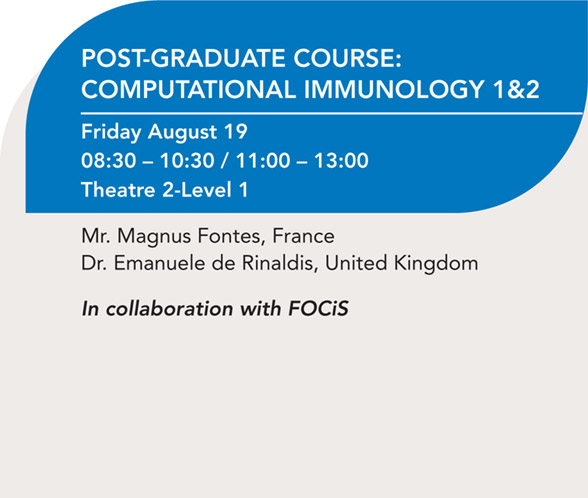
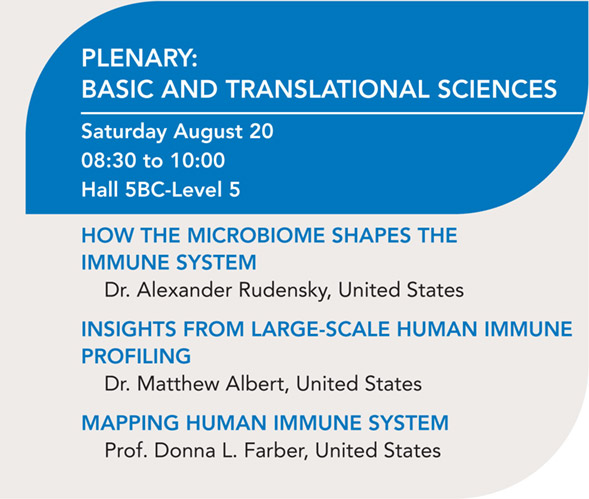
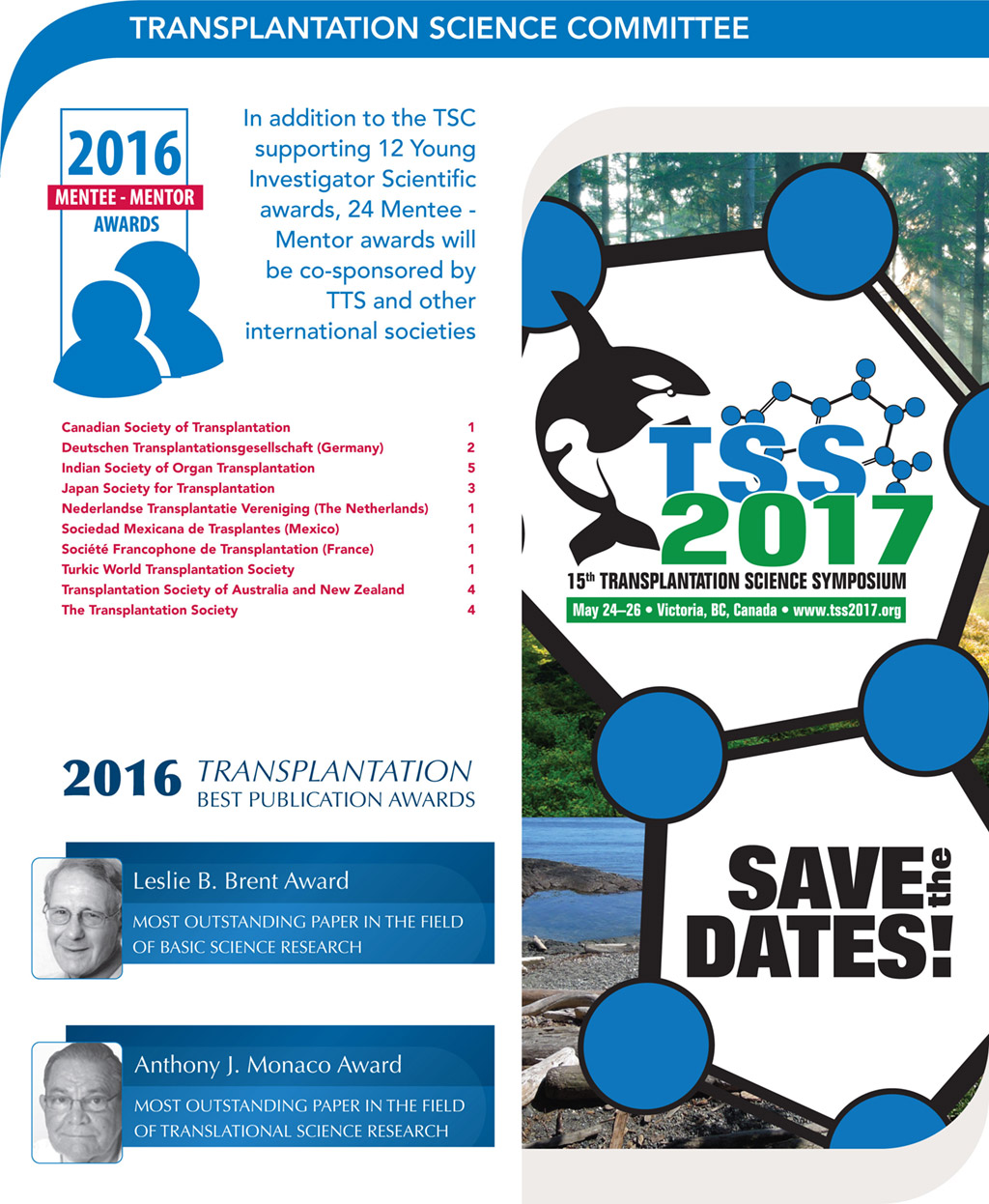

The Women in Transplantation initiative has kicked off another year filled with activities for women professionals in the field of transplantation. WIT began 2016 with a highly successful networking lunch during the International Society for Heart and Lung Transplantation Congress in Washington, DC, USA. The session entitled “The Three Ms: the Nexus of Medicine, Message and the Media”, featured Rebecca Peterson, a seasoned journalism discussing the connection between media and the world of medicine.
We are also pleased to report on the success of the first ever WIT Developing Leaders workshop supported by Novartis. This workshop took place in advance of the American Transplant Congress on June 11th, 2016 in Boston, MA, USA. The workshop featured Roz Usheroff, a professional business coach; and Ester Banque, VP and Head of Immunology & Dermatology at Novartis. Both speakers engaged participants with personal reflections and examples, as well as tools to use to find your own leadership style. TTS and WIT members can view Ester’s talk on the WIT website.
WIT is also deeply saddened at the passing of our Steering Committee Chair, Josette Eris. Josette became the Chair of WIT in July of 2014 and worked tirelessly to further the development of the first ever Leaders workshop, as well as the Women in Transplantation scientific track for the upcoming TTS Congress in Hong Kong. Josette’s passion and leadership will be deeply missed by the Steering Committee and anyone who had the opportunity to work with her.
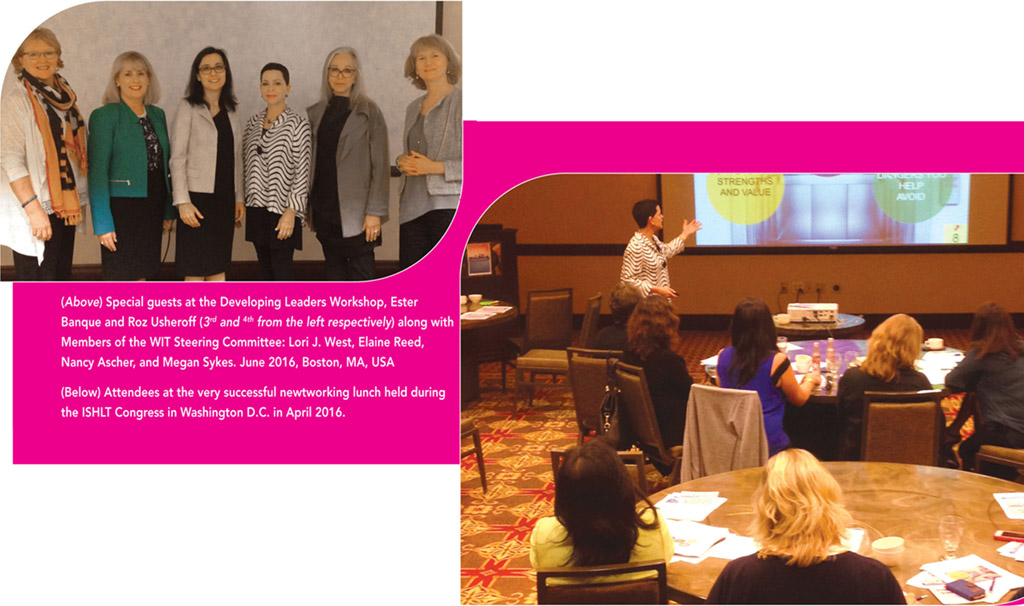
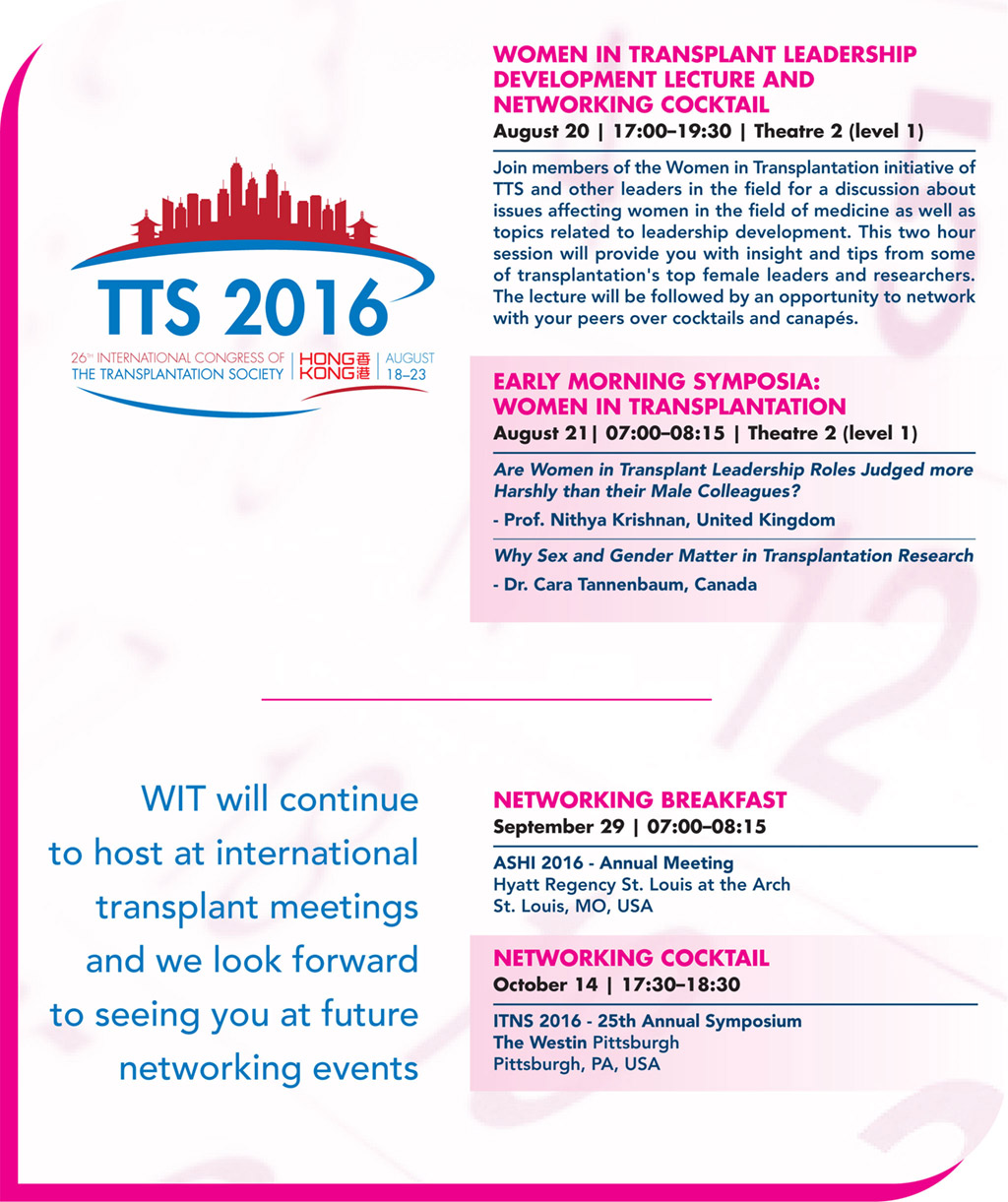
TTS OFFICERS AND COUNCILORS 2014–2016
To consolidate its position as the leading global organization, the Council has representation from all six regions of the world: Asia, Europe, Latin America, Middle East/Africa, North America and Oceania.
EXECUTIVE MEMBERS
| PRESIDENT Philip J. O’Connell |
| PRESIDENT-ELECT Nancy Ascher |
| IMMEDIATE PAST PRESIDENT Francis L. Delmonico |
| VICE-PRESIDENT Marcelo Cantarovich |
| SECRETARY Gabriel Danovitch |
| SENIOR TREASURER John J. Fung |
| TREASURER Elmi Muller |
| HISTORIAN Randall E. Morris |
| INTERNATIONAL HEADQUARTERS Jean-Pierre Mongeau Executive Director |
COUNCILORS
| ASIA Jongwon Ha Vivekanand Jha Shiro Takahara |
| EUROPE Beatriz Domínguez-Gil Dirk R.J. Kuyper |
| LATIN AMERICA Rudolf Garcia-Gallont Alejandro Niño Murcia |
| MIDDLE EAST / AFRICA Ifeoma Ulasi |
| NORTH AMERICA Minnie Sarwal Megan Sykes Stefan G. Tullius |
| OCEANIA vacant |
Tribune is published by
The Transplantation Society (TTS).
Editor-in-Chief: Nancy K. Man
International Headquarters
International Headquarters
The Transplantation Society
505 boul. René-Lévesque Ouest
Suite 1401
Montreal, QC H2Z 1Y7 CANADA
T. +1.514.874.1717
F. +1.514.874.1716
E. This email address is being protected from spambots. You need JavaScript enabled to view it.
W. www.tts.org
Please contact any of our dedicated staff for any assistance you may require:
| Roman Beliaevski IT/Multimedia This email address is being protected from spambots. You need JavaScript enabled to view it. |
| Roberto Colarusso Director of Technologies This email address is being protected from spambots. You need JavaScript enabled to view it. |
| Veronique Grenier Meetings Coordinator This email address is being protected from spambots. You need JavaScript enabled to view it. |
| Geneviève Leclerc Director of Meetings This email address is being protected from spambots. You need JavaScript enabled to view it. |
| Sondra Livingston Sections Manager This email address is being protected from spambots. You need JavaScript enabled to view it. |
| Amanda Mayer Membership Services Coordinator This email address is being protected from spambots. You need JavaScript enabled to view it. |
| Jean-Pierre Mongeau Executive Director This email address is being protected from spambots. You need JavaScript enabled to view it. |
| Catherin Parker Meetings Manager This email address is being protected from spambots. You need JavaScript enabled to view it. |
| Chelsea Patriquin Meetings Coordinator This email address is being protected from spambots. You need JavaScript enabled to view it. |
| Denise Rainville Controller This email address is being protected from spambots. You need JavaScript enabled to view it. |
| Anaïs Rodriguez Meetings Manager This email address is being protected from spambots. You need JavaScript enabled to view it. |
| Eugenia Siu Registration & Administration Coordinator This email address is being protected from spambots. You need JavaScript enabled to view it. |
| Darren Woodbury Graphic Designer This email address is being protected from spambots. You need JavaScript enabled to view it. |
| Chi Hong Yeung Accounting Clerk This email address is being protected from spambots. You need JavaScript enabled to view it. |
Contact
+1-514-874-1717
This email address is being protected from spambots. You need JavaScript enabled to view it.
Address
The Transplantation Society
International Headquarters
505 Boulevard René-Lévesque Ouest
Suite 1401
Montréal, QC, H2Z 1Y7
Canada

